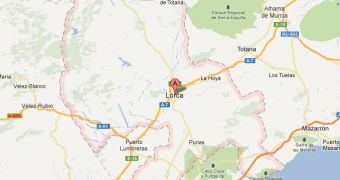A recent earthquake in Spain which, while relatively small, caused quite a lot of damage and the death of nine people, is believed to have been triggered or at least influenced by deep wells that have been drilled in the region for the last decades.
Farmers have been drilling ever deeper in the southern Spain region where the earthquake that hit the town of Lorca the hardest happened on May 11, 2011.
The earthquake only measured 5.1 on the Richter scale, barely enough to break a few dishes normally, but, at 3 km or 1.8 miles, was much shallower than most quakes so its impact was much greater felt.
Researchers now believe that the earthquake is linked to the lowering of the aquifer in the region by around 250 m, or 820 feet, since the 1960s.
This drop was caused by deeper and deeper wells and ever more thirsty farmers and industry in the region.
The lowering of the groundwater weakened the Earth's crust in the area and favored the earthquake along the Alhama de Murcia fault line.
The human influence caused the earthquake, a paper published in Nature concludes, and also affected how much the fault line moved.
The earthquake would have happened eventually, the region is known for high earthquake activity, but its ignition and magnitude were caused by human influence.
The research doesn't help much with earthquake prediction, the data is only useful for the region and other areas where water is extracted or pumped into the ground.
It is the first clear evidence that human activities can trigger earthquakes, so the research is still very valuable. It's particularly of interest in the debate over fracking, the process of releasing petroleum or natural gas by pumping a fluid into the ground.
The method can make it possible to extract hydrocarbons from otherwise unusable reservoirs, but there is a lot of concern over its effect on the region, ranging from contaminating water supplies to triggering earthquakes.

 14 DAY TRIAL //
14 DAY TRIAL //